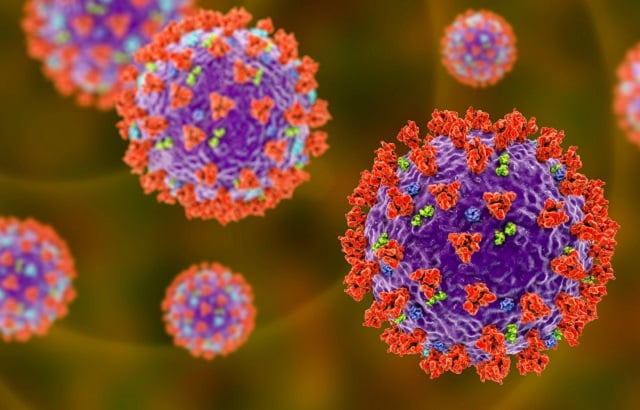
Research finds Covid-19 spike protein binds to cells in the heart and could help to explain some effects of severe infection

The spike protein found on the surface of Covid-19 virus cells causes changes to cells in the small blood vessels of the heart, according to early findings presented at the European Society of Cardiology Congress.

Researchers from the University of Bristol have found that, in cells in a dish in the lab, the spike protein binds to cells called pericytes which line the small vessels of the heart. This binding triggers a cascade of changes which disrupt normal cell function, and can lead to the release of chemicals that cause inflammation. This happened even when the protein was no longer attached to the virus.
There is some previous evidence to suggest that following Covid-19 illness, the spike protein can remain in the bloodstream after the virus has gone and travel far from the site of infection. This research could help explain and ultimately treat some of the effects of severe Covid-19 infection, where levels of the virus are particularly high.
Research has shown that vaccination is a safe and effective way of reducing your risk of severe Covid infection, so is the best thing you can do to reduce your risk of Covid-19 complications, including heart damage.
This early research looks at what happens when cells within the small blood vessels of the heart are exposed to high levels of the spike protein in a laboratory setting. It could help to start to explain some of the effects of severe Covid-19 infection, where levels of the virus are particularly high.
What does this study not show?
This research only looked at the spike protein found on virus cells. There is no evidence to suggest that spike proteins generated by the vaccine behave in a similar way.
What can we do to avoid heart damage from Covid-19?
The best way to reduce your risk of severe Covid-19 infection is to follow the current health advice where you live – including getting vaccinated if you’re eligible.
Being fully vaccinated against Covid-19 means that your immune system will rapidly produce antibodies against the spike protein if it encounters the virus. These antibodies will work to neutralise any circulating spike protein.
In this study, which has yet to be formally published or reviewed by other scientists, researchers only studied pericytes from the small blood vessels within the heart. However, pericytes are found within small blood vessels all over the body, including in the brain and central nervous system. This latest finding may start to help explain the effect of the virus on organs away from the site of the Covid-19 infection.
Researchers took small vessel cells from the heart and exposed them to the spike protein. They found that the spike protein alone was enough to disrupt normal cell function, and lead to the release of chemicals that cause inflammation.
They then blocked the CD147 receptor and found that this prevented the spike protein from causing some of the changes to the cells. However, the inflammation continued. Now the researchers hope to find out if a drug blocking CD147 in humans can help to protect people from some of the complications arising from Covid-19.
Professor James Leiper, Associate Medical Director at British Heart Foundation, which funded the research, said:
“Covid-19 has presented an unprecedented challenge for the cardiovascular research community. There is still a lot that is unknown relating to how the virus can impact our health in the long term, but this research brings us one step closer to better understanding how Covid-19 affects the heart and circulatory system and may ultimately lead to new ways to protect the heart.
*This article was updated with additional information on 16/09/21*

